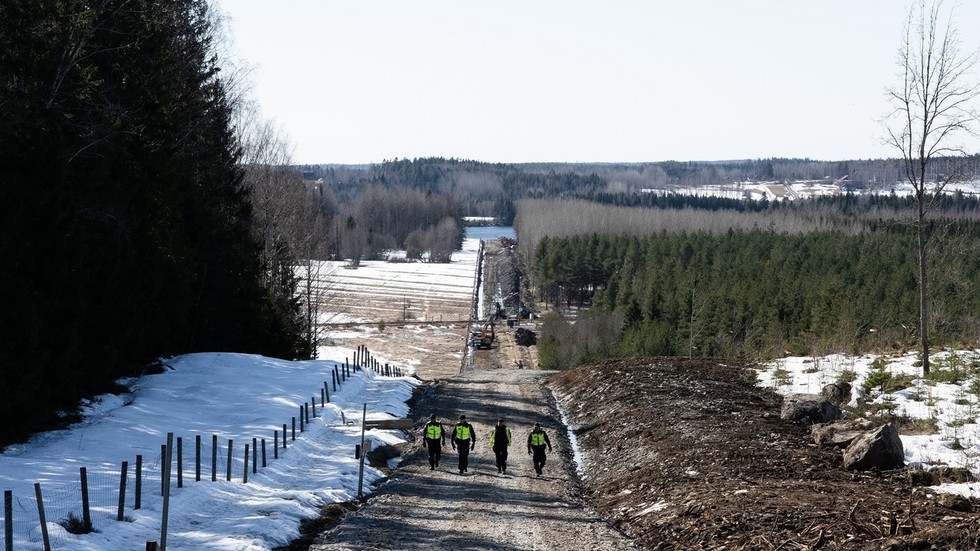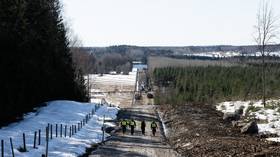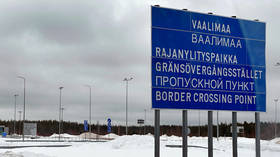
The situation will hopefully not reach that point, presidential spokesman Dmitry Peskov has said after Finland closed border crossings

FILE PHOTO: The Finnish-Russian border in Imatra, Finland. © Jakob Johannsen / Anadolu Agency via Getty Images
Finland’s closure of border crossings with Russia and potential similar steps by Norway and Estonia are not yet the modern equivalent of the Cold War’s ‘Iron Curtain’, Kremlin spokesman Dmitry Peskov told journalists on Friday.
Earlier this month, Finland decided to fully suspend most cross-border travel with Russia, leaving only a remote checkpoint open north of the Arctic Circle. Helsinki claimed the ban was meant to prevent entry by illegal migrants. Officials in Norway and Estonia have suggested they may follow suit, with the latter deploying anti-tank ‘dragon teeth’ near a bridge crossing with Russia, claiming it was a measure to deter unlawful immigration.
Asked whether the developments indicated an attempt by European nations to bring down a new ‘Iron Curtain’ to cut off Russia, Peskov said that assessment would be premature. “There is a lot of aggressive rhetoric coming from the other side, but we’ll hope things won’t come to that,” he added.

Read more
British Prime Minister Winston Churchill popularized the ‘Iron Curtain’ metaphor for the split between capitalist and socialist countries following World War II. Giving a keynote speech in Fulton, Missouri in 1946, Churchill denounced the “increasing measure of control from Moscow” over nations in Eastern Europe, declaring that “an iron curtain has descended across the continent.”
During the confrontation between the two blocs in the second half of the 20th century, heavy restrictions were in place on communication, trade, travel, and other forms of contact. East-West commerce was blocked after World War II on the initiative of the US and its allies, as part of their strategy to contain the USSR. Nations in the East had strict security rules for their citizens and prevented most of them from traveling abroad.
Decoupling from Russia economically and trying to isolate it internationally are key elements of the Western response to the Ukraine crisis. Moscow has reacted by prioritizing relations with parts of the world which have refused to join the US-led punitive campaign.
READ MORE: Kremlin responds to NATO’s ‘military Schengen’ plan
“Sovereignty [and] independent development absolutely do not mean isolation, autarky. On the contrary, they assume active mutually beneficial cooperation on the principles of fairness and equality,” President Vladimir Putin said at the 2022 Valdai Discussion Club, explaining the Russian strategy to tackle Western pressure.




